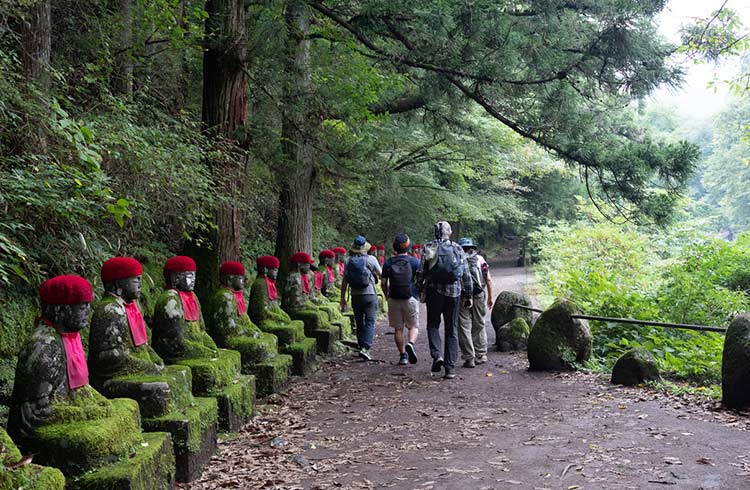How to Plan a Working Holiday: 7 Tips for Success
A working holiday can be an amazing adventure, but there can be pitfalls if you don’t plan properly. Sarah Thomas shares her tips, from researching working holiday visas to making new friends abroad.
 Photo © Getty Images / Maskot
Photo © Getty Images / Maskot
A working holiday can be a life-changing experience. Just ask me – I shipped up to Australia with a backpack at 30, seeking adventure and an escape from London city life, and ended up accidentally staying 17 years. I arrived with zero expectations but gained lifelong friends, an amazing career, a life in the heart of beautiful Sydney, an Australian passport and a million stories to tell.
Embarking on a working holiday can totally shape the course of your life. But everyone’s experience is different – and that’s the beauty of it. You can tailor a working holiday to whatever you want it to be: a gap year, a career break, a funding source for travels, work experience, charity work and giving something back, and so on. Whatever you do, the potential wins are the same: unforgettable life-affirming experiences, visiting amazing places, making new friends and making a contribution.
There are, of course, risks. It’s important to do your research and make sure you find the right place that’s the right fit for you. Will it be easy to find work and a wage you can live off? Will you find a supportive community of fellow travelers so you don’t feel lonely or isolated? Will you manage to negotiate unfamiliar surroundings with confidence? Check out these tips to help you navigate your big adventure.
- Look into working holiday visas
- Make sure you’re job ready
- Organize work before you leave
- Research your destination
- Be prepared for culture shock
- Seek out new friends
- Don’t forget the work/life balance
1. Look into working holiday visas
It’s important to choose the right place to work abroad. Depending on where you live, a good place to start is checking out any reciprocal agreements for working holiday visas. For example, if you’re from Australia, New Zealand or Canada and aged 18-35, you can work in the UK for two years, with the option to extend by another year. Visas can be issued in as little as three weeks – but there are costs to bear before you even book that flight. You’ll need to prove that you have £2530 (US $3,120) in savings, pay an application fee of £298 (US $367) and also a healthcare surcharge of £776 (US $957).
If you’re from the US, you can look at places like Australia, New Zealand, Ireland, Singapore, and South Korea. There are many organizations, such as Bunac, that serve as a kind of hand-holding 24/7 support with help with things like jobs, orientation tips, and setting up tax and social security numbers.
2. Make sure you’re job ready
You may opt for something vocational, but making sure you have some experience in trades popular for casual work is also a good way forward and safety net. In places like Australia, you may find there are lots of jobs in hospitality and agriculture. Many of these employers are used to a thoroughfare of backpackers coming through, particularly in busy summer seasons. It’s not essential that you have experience as most places should provide training, particularly in farming or harvesting work, but it helps. You should also check out if you need any local certificates – for example, in Australia to work in bars you need the Responsible Service of Alcohol training. There are many companies that offer this course which can be done online in a matter of hours.
Teaching English is another way to pay your way around the world, but it’s essential to make sure that the relevant country will grant you a visa and be aware that pay can often be low. In all jobs, it’s important to get a gauge of what you may earn before you go, so that you can safely fund yourself.

3. Organize work before you leave
With many of the options mentioned above, work can be set up before you leave. If you choose to play it this way, it offers peace of mind plus an idea of confirmed income which will help you manage your living expenses. Teaching programs are an obvious avenue here and can help you with flights, accommodation, and visas. There may be recruitment agencies in your intended destination that specialize in employing backpackers and working-holiday travelers that you can find through internet searches.
Another idea here is also to hunt out backpacker, expat, or traveler social media groups in the destination you’re traveling to – they can function as a good jobs board as well as linking you with a community on the ground.
4. Research your destination
Being pre-emptively prepared and equipped is essential for avoiding any pitfalls on arrival. Do you need a car to get around? What do you need to mindful of in terms of local culture? What’s the best way to get affordable accommodation? How do you get a phone and internet? How do you negotiate banking?
You also need to research to find the best of where you’re traveling to – the bucket list experiences, the best places to visit and all the good stuff that’s drawing you to this destination in the first place.

5. Be prepared for culture shock
The point of travel is immersing yourself in a new culture, but it can also be potentially disorientating, bewildering, and isolating depending on where you end up, particularly if there’s a language barrier. Just looking around the supermarket and seeing aisle after aisle of unfamiliar goods can be jarring. It’s important to make sure you understand that you may not have your creature comforts around you, and that you’re prepared to embrace the new and different.
6. Seek out new friends
As mentioned earlier, hunting out groups on social media is a good start to finding new buddies and a gang of like-minded people sharing similar experiences. Depending on your work, you will likely come across fellow travelers in accommodation like hostels, or on the job. Seek out backpacker or expat events at bars, gyms, and sports groups.
Make sure you tap into the local culture, too. It’s good to have a supportive bubble of similar people, but also be sure to get to know the locals.
7. Don’t forget the work/life balance
You might have periods where the cash reserves are low and you need to keep your head down and restock your savings for a while, or some jobs can be permanently low-paid or involve long hours. But make sure you’re always planning how to make the most of where you are – whether that’s your next extended trip or weekend getaway, a new place to explore, or a destination on your hitlist.
You came here for the experience, so remember to keep a good balance and make sure you’re working to live, not living to work. It’s about making memories, not money.



No Comments